
Usually when we hear of things that have happened, both good and bad, we know we have a stash of ‘go to’ reactions and actions. Countless times I have simply gone to be with someone who needed being with. I find comfort when I can bake or cook a meal and deliver it to a friend in need. I gather my family close. I join together with others to give and receive support and to simply have a place where we can share our feelings. We have rituals and ceremonies to mark our important events.
Each of these little routines, give us a way to let our feelings find their way out of our bodies. Those routines have a normalcy, and that helps us cope. This week, my feelings have no where to go. It’s like someone has stuck a cork in all of the usual escape routes. We can’t gather with others. We can’t talk in person. We can’t hug. We can’t go and be. We can’t go to a memorial service. We can’t visit hospitals. We can’t even look forward to an exact date when we might be able to do some of these things again.
So, the question I’ve been wrestling with this week is this, ‘How do we show our love and provide support, when the storm is so big, and so different than anything we have ever known?’
The answers I have come up with have been found in two places; in Nova Scotia and in my marriage. Today, Saturday, April 25th, Jim and I celebrate forty years of marriage. We had hoped to be in Ireland. Then in June, we had booked a trip to Nova Scotia, for me to bike the Cabot Trail with my friend Rhonda, and with my brother, Daniel, the RCMP officer, and his partner Victoria. Jim was to be our trusty support person. Both of these trips are now on pause of course. Whether or not we are in Ireland, and Nova Scotia, we still have forty years on which to reflect.
What I know from my marriage is that if you stay married for any length of time, you will have storms to navigate. No two storms will be alike. Some will be mild, some will be incredibly frightening, some will be shocking, and some will whip up waves that feel like they could sweep you away. A few will leave rainbows. None of the storms will come in times of convenience. Most will come with little or no warning. Many will come while we have our attention fixed firmly in a different direction. None will come with an instruction manual.
Jim and I have had our share of storms. We have lost parents and unborn babies and siblings. We have had children move far away. We have weathered two open-heart surgeries and countless hospital stays. We have had job disappointments and people disappointments. I’m not sure if we’ve had more or less than anyone else. No one gets through life, or marriage, without storms.
Nova Scotia has storms too. One of the things I fell in love with when we visited Nova Scotia in the year of Canada’s 150th birthday, was her most beautiful lighthouses. No matter the storm battering the shore, those lighthouses have stood for literally hundreds of years, offering beacons of safety and hope. These days, electronics assist in keeping lights shining, but in long ago times, lighthouse keepers were employed to keep the light burning. I’m certain the keepers had other duties to attend but their absolute primary duty was to keep the light burning so fishermen and seamen could navigate their way safely along the shore and home. The light from the lighthouses provided comfort, guidance and hope.
Lighthouses do not get to choose their storms. Neither do marriages. Neither do the people of Nova Scotia. Neither do we, the citizens of Canada. Lighthouses do not always get warnings about storms. Neither do marriages. Neither do the people of Canada. In a good marriage, when one person is battling a storm, the other keeps the light shining. In good countries, when one province or one group of people is battling a storm, the others keep the light shining. Lighthouses stand tall, and continue to shine their light through the storm. The ones that do this are the ones that do the most good. So too with marriages. And countries.
Our front-line workers do not have the luxury of being lighthouse keepers. Honouring the oaths they have taken, they must rush headlong into storms. We are grateful they do this. The rest of us can do our part by keeping the light.
Right now, we want to gather all Nova Scotians, and all families affected by the tragedy there, and the Covid-19 crisis everywhere, and do what we have always done. We cannot. Now is our time to take a lesson from Nova Scotia and from her lighthouses. We need to simply keep our light on, letting others know that although we cannot head out to sea to help them navigate the storm they face, we can show them that we wait, ready to provide comfort, peace, and a sense of togetherness.
May each of us, keep our light on for our cousins in Nova Scotia and for all those working so hard to guide us through this pandemic.
My inquiry for you this week is, ‘How am I keeping my light on?’
Elizabeth is a certified professional Leadership Coach, and the owner of Critchley Coaching. She is the founder and president of the Canadian charity, RDL Building Hope Society. She works with corporations, non-profits and the public sector, providing leadership coaching. She creates and facilitates custom workshops for all sizes of groups. She has particular expertise in facilitating Strategic Plans for organizations. Contact Elizabeth to learn how to be a faithful lighthouse keeper.

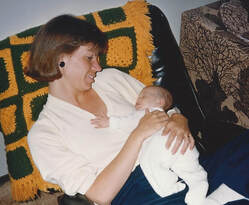

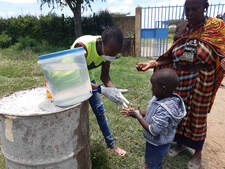
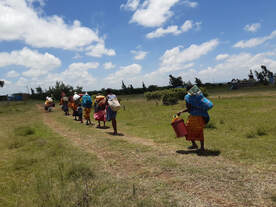
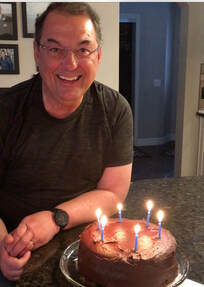
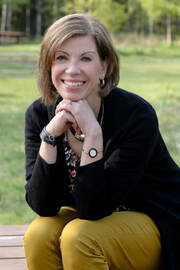
 RSS Feed
RSS Feed